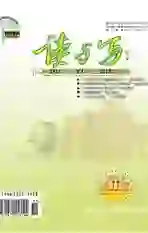A Few Comments on Correcting Errors in College Students’ English Compositions
2019-12-13陈喜华
Abstract:This article deals with several main problems about correcting college studentsEnglish compositions, e.g. what should the teacher do with errors and who should correct them? It also analyses the proper time of doing correction, the number of errors and the types of errors the teacher should correct as well. It holds that the teacher should be tolerant of the errors and help the students to correct them. He should try his best to provide the students with feedback as quickly as possible and had better focus on correcting one type of error only.
Key words:Writing; Correction; Errors; College Students; English Compositions
中圖分类号:H319 文献标识码:A 文章编号:1672-1578(2019)11-0001-01
1 Introduction
College Students cannot write English compositions without making mistakes. Errors make correction difficult to do for every writing teacher. Traditionally the English writing teacher mainly adopts the red-pen policy, giving students much negative feedback instead of some positive ones. Thus students are often greatly discouraged rather than improving their writing skills. Then what should the teacher do when faced with an essay replete with errors?Who should correct these errors?When and how many errors should be corrected? What types of errors should be corrected? etc. These questions have been puzzling writing teachers a lot. This article intends to shed light on these problems.
2 What Should the Teacher Do with Errors
It has not yet been demonstrated convincingly
that there is any best philosophy for correcting college students English compositions. To sum up the ideas, I think the teacher should be tolerant of the errors, even those very silly ones. He should regard errors as a natural and important part of the learning process. But that does not mean the teacher can ignore errors. Because some studies show that language accuracy,fluency, complexity and composition quality are closely related to the teachers feedback and revision.(Wang Ying,Liu Zhenqian 2012) The teacher should at least point out some of the studentsserious errors and correct them in order to call students attention and help them avoid those errors later on. But for certain“treatable”errors,including those involving orthography and particles, “underlining the errors and asking students to self-correct them can be helpful.”(Eun Sung Park,et al.2016)
3 Who should correct errors
To this question, there are various answers. First, the teacher plays a very significant and indispensable role in this course. He is a guide instead of a man being responsible for correcting errors only. He should help students--find out the strengths and weaknesses of their writing ability by working with them on their individual papers. Correction might also come from peers, groups or even teacher candidates. But students needed some training before they take the job of correction. In peer review, students read and comment on each others writing, e.g., their neighbors.
4 What Is the Most Proper Time for the Teacher to Correct Students Written Work
The teacher should try his best to provide
students with feedback as quickly as possible, or at least on time. For example, the teacher should return compositions students hand in last time to them during the class next time.
And in class, while students are writing their compositions, the teacher can move round the class supervising their work or encourage them to come over to him, giving a few general ideas on some big issues students should give heed to. This is exactly the immediate feedback.
5 How Many Errors Should Be Corrected
Of course, not the more mistakes are corrected, the better it will be. As mentioned before, it is always best to avoid seas of red ink over the page. Instead of being an error hunter, the teacher should read student papers as a genuine reader. He should try every possible means to show that he cares and enjoys reading what students have written. Generally speaking, the teacher had better focus on correcting one type of error only, e.g., spelling errors, tense errors or items that were taught recently.
6 Conclusion
In practice, there are many other problems about correcting compositions in existence. I just mention a few here. Better ways of correcting compositions are still waiting to be explored.
References:
[1] 王颖,刘振前.教师反馈对英语写作准确性、流利性、复杂性和总体质量作用的研究[J].外语教学,2012(6):49-53.
[2] Park, Eun Sung;Song, Sunhee;Shin,Yu Kyoung.To What Extent Do Learners Benefit from Indirect Written Corrective Feedback? A Study Targeting Learners of Different Proficiency and Heritage Language Status[J]. Language Teaching Research,2016,20(6):678,699.
作者簡介:陈喜华(1978-),女,湖南湘潭人,硕士,讲师,研究方向:英语教学和美国文学。
